- 1如何快速且高效的自学软件测试?听听6年测试总监怎么说...._快速 高效 软件测试
- 2用selenium获取土地交易数据并用百度智慧云API图片转文字_土地交易数据python
- 3SpringCloudConfig使用ssh方式连接GitHub报错JSchException: Auth fail的解决方案
- 4C++ STL unordered_multimap
- 5基于51单片机智能药盒定时吃药喂药蓝牙上传APP设计22-106
- 6Prompt的科学范式(上篇)_prompt的例子
- 7Mysql死锁问题如何排查和解决_mysql死锁排查及解决
- 8微信群发工具-含源代码分享_c++源码,微信群发
- 9工作场所监控革新:思通数科AI大模型在员工睡眠行为识别中的应用
- 10python验证码 识别代码不准_python 验证码识别示例(二) 复杂验证码识别
labelme转COCO数据集(物体检测),Python教程零基础入门_labelme数据格式转coco
赞
踩
import json
import matplotlib.pyplot as plt
import skimage.io as io
import cv2
from labelme import utils
import numpy as np
import glob
import PIL.Image
REQUIRE_MASK = False
labels = {‘aircraft’: 1, ‘oiltank’: 2}
class labelme2coco(object):
def init(self, labelme_json=[], save_json_path=‘./new.json’):
‘’’
:param labelme_json: the list of all labelme json file paths
:param save_json_path: the path to save new json
‘’’
self.labelme_json = labelme_json
self.save_json_path = save_json_path
self.images = []
self.categories = []
self.annotations = []
self.data_coco = {}
self.label = []
self.annID = 1
self.height = 0
self.width = 0
self.require_mask = REQUIRE_MASK
self.save_json()
def data_transfer(self):
for num, json_file in enumerate(self.labelme_json):
if not json_file == self.save_json_path:
with open(json_file, ‘r’) as fp:
data = json.load(fp)
self.images.append(self.image(data, num))
for shapes in data[‘shapes’]:
print("label is ")
print(shapes[‘label’])
label = shapes[‘label’]
if label[1] not in self.label:
if label not in self.label:
print("find new category: ")
self.categories.append(self.categorie(label))
print(self.categories)
self.label.append(label[1])
self.label.append(label)
points = shapes[‘points’]
self.annotations.append(self.annotation(points, label, num))
self.annID += 1
def image(self, data, num):
image = {}
img = utils.img_b64_to_arr(data[‘imageData’])
height, width = img.shape[:2]
img = None
image[‘height’] = height
image[‘width’] = width
image[‘id’] = num + 1
image[‘file_name’] = data[‘imagePath’].split(‘/’)[-1]
self.height = height
self.width = width
return image
def categorie(self, label):
categorie = {}
categorie[‘supercategory’] = label
categorie[‘supercategory’] = label
categorie[‘id’] = labels[label] # 0 默认为背景
categorie[‘name’] = label
return categorie
def annotation(self, points, label, num):
annotation = {}
print(points)
x1 = points[0][0]
y1 = points[0][1]
x2 = points[1][0]
y2 = points[1][1]
contour = np.array([[x1, y1], [x2, y1], [x2, y2], [x1, y2]]) # points = [[x1, y1], [x2, y2]] for rectangle
contour = contour.astype(int)
area = cv2.contourArea(contour)
print("contour is ", contour, " area = ", area)
annotation[‘segmentation’] = [list(np.asarray([[x1, y1], [x2, y1], [x2, y2], [x1, y2]]).flatten())]
[list(np.asarray(contour).flatten())]
annotation[‘iscrowd’] = 0
annotation[‘area’] = area
annotation[‘image_id’] = num + 1
自我介绍一下,小编13年上海交大毕业,曾经在小公司待过,也去过华为、OPPO等大厂,18年进入阿里一直到现在。
深知大多数Python工程师,想要提升技能,往往是自己摸索成长或者是报班学习,但对于培训机构动则几千的学费,着实压力不小。自己不成体系的自学效果低效又漫长,而且极易碰到天花板技术停滞不前!
因此收集整理了一份《2024年Python开发全套学习资料》,初衷也很简单,就是希望能够帮助到想自学提升又不知道该从何学起的朋友,同时减轻大家的负担。
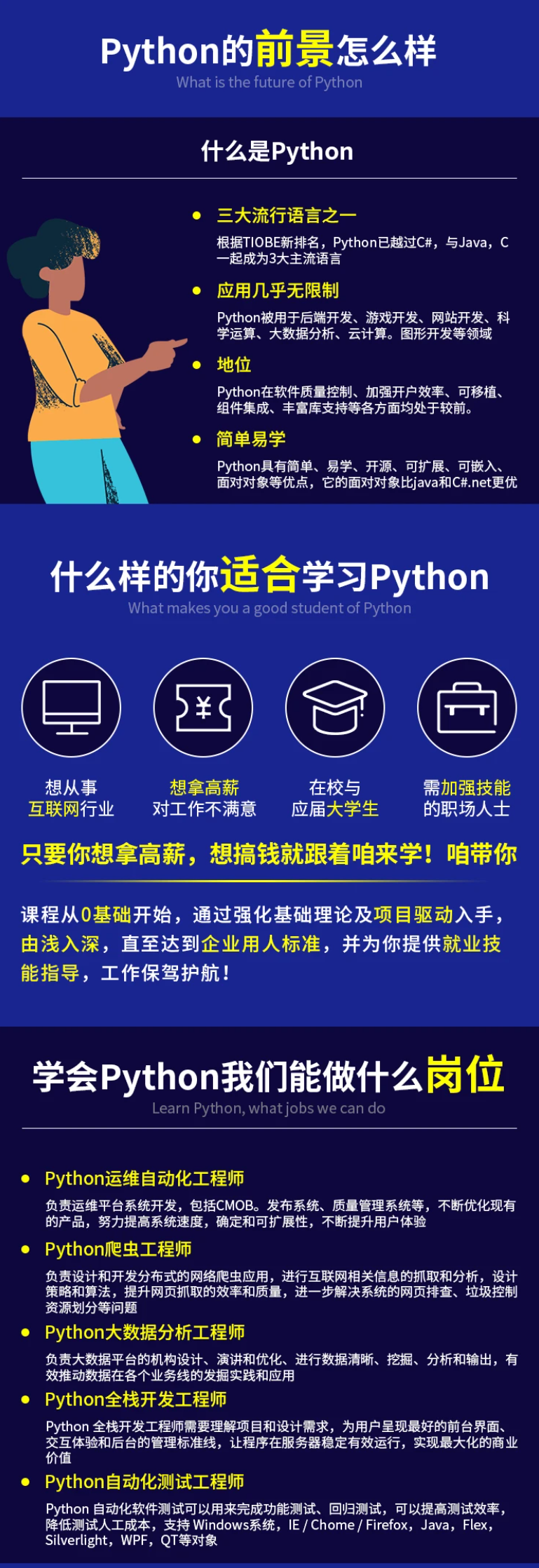
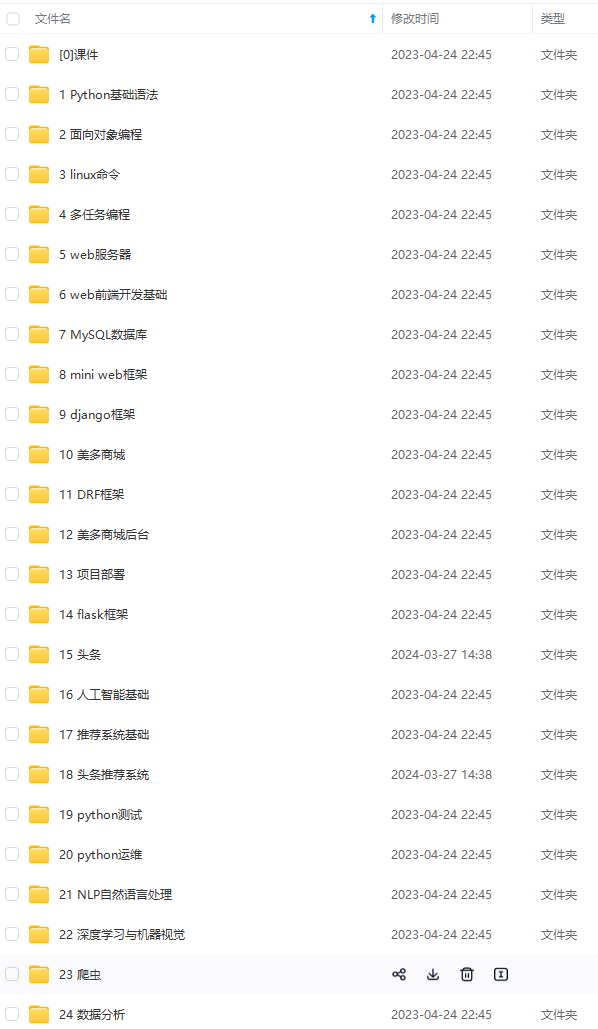
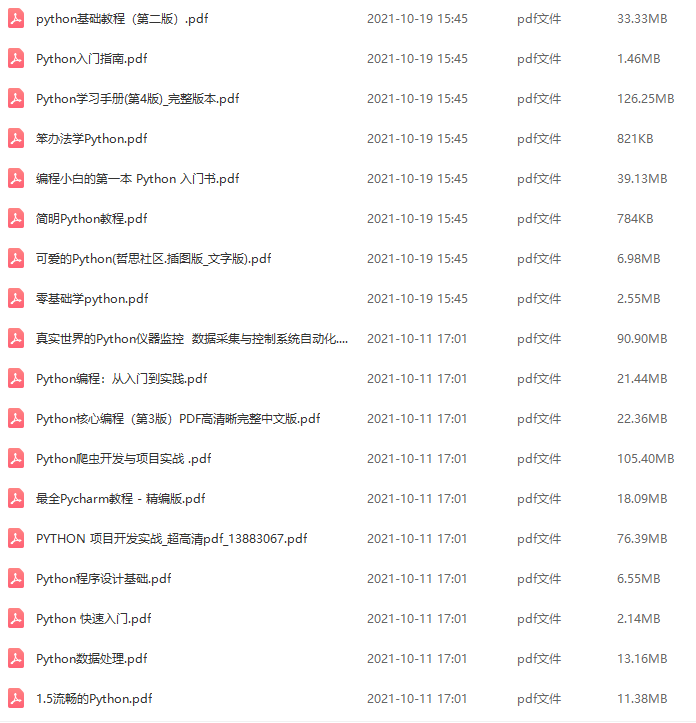
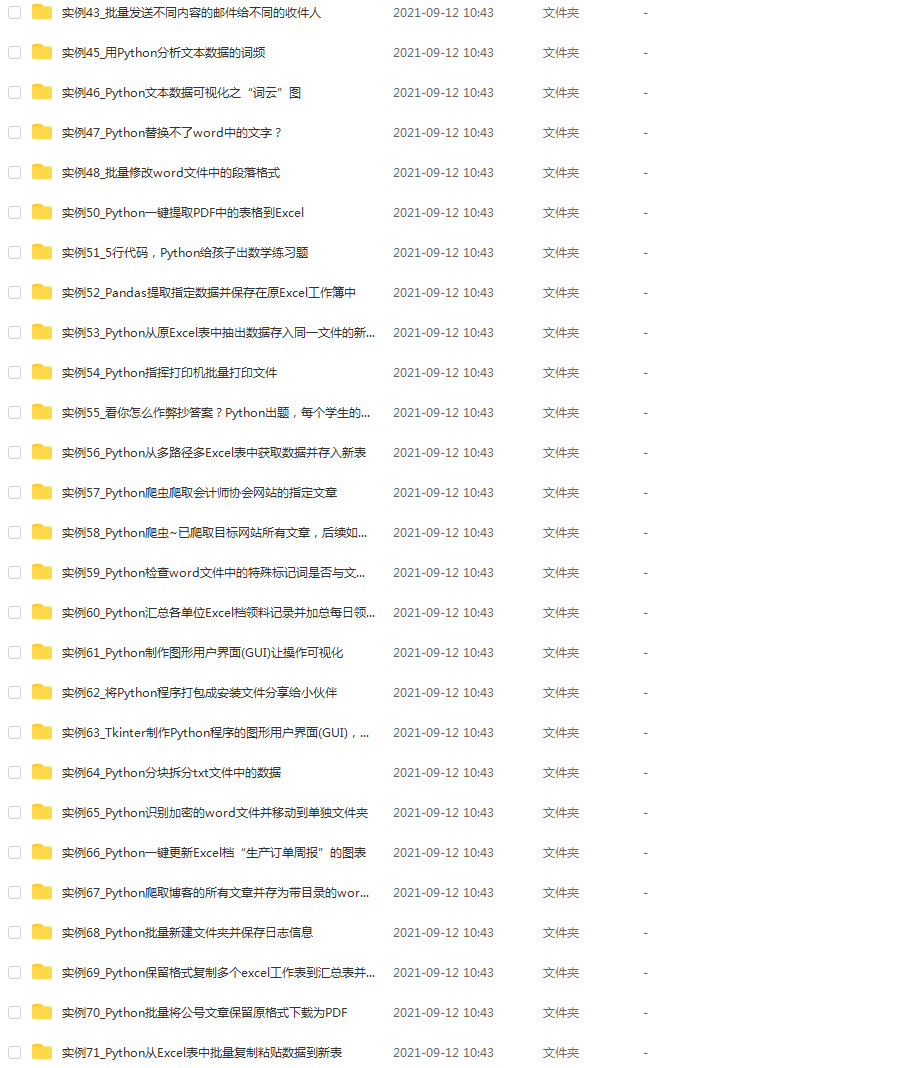
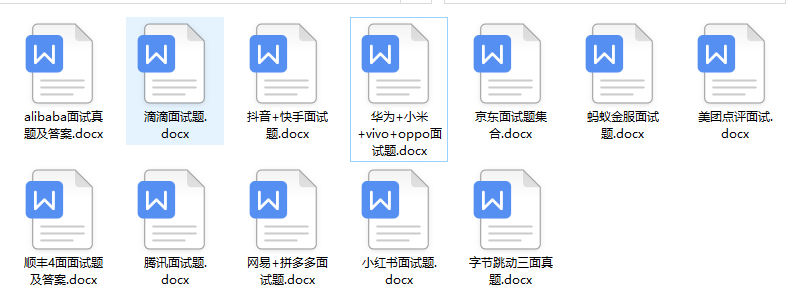
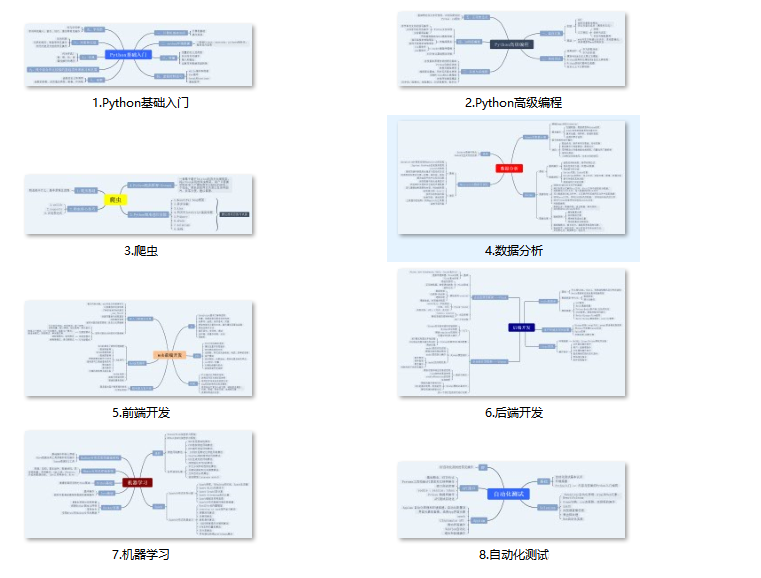
既有适合小白学习的零基础资料,也有适合3年以上经验的小伙伴深入学习提升的进阶课程,基本涵盖了95%以上Python开发知识点,真正体系化!
由于文件比较大,这里只是将部分目录大纲截图出来,每个节点里面都包含大厂面经、学习笔记、源码讲义、实战项目、讲解视频,并且后续会持续更新
如果你觉得这些内容对你有帮助,可以添加V获取:vip1024c (备注Python)
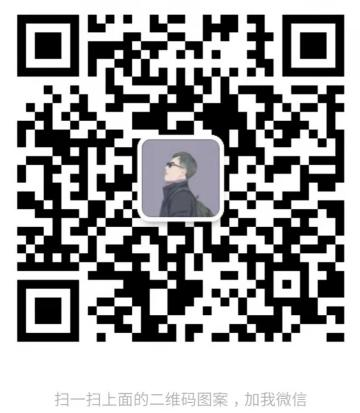
(1)Python所有方向的学习路线(新版)
这是我花了几天的时间去把Python所有方向的技术点做的整理,形成各个领域的知识点汇总,它的用处就在于,你可以按照上面的知识点去找对应的学习资源,保证自己学得较为全面。
最近我才对这些路线做了一下新的更新,知识体系更全面了。
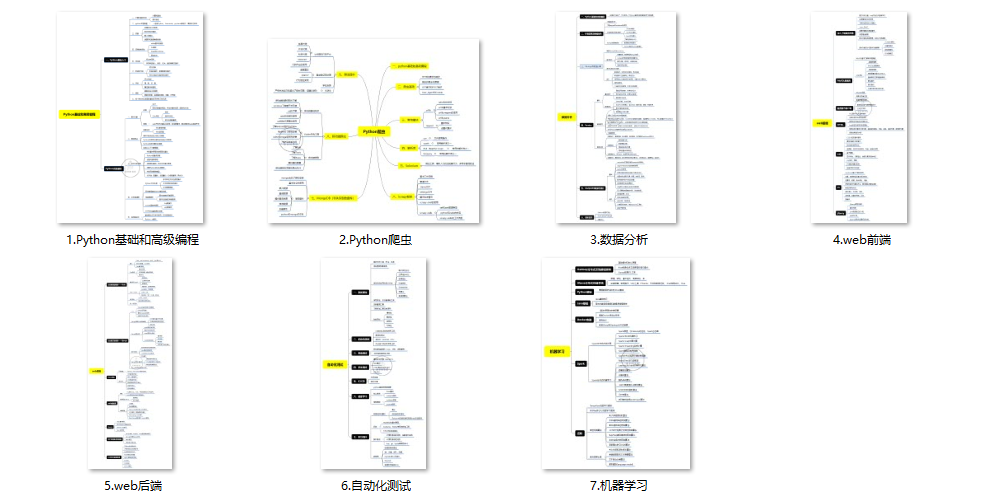
(2)Python学习视频
包含了Python入门、爬虫、数据分析和web开发的学习视频,总共100多个,虽然没有那么全面,但是对于入门来说是没问题的,学完这些之后,你可以按照我上面的学习路线去网上找其他的知识资源进行进阶。
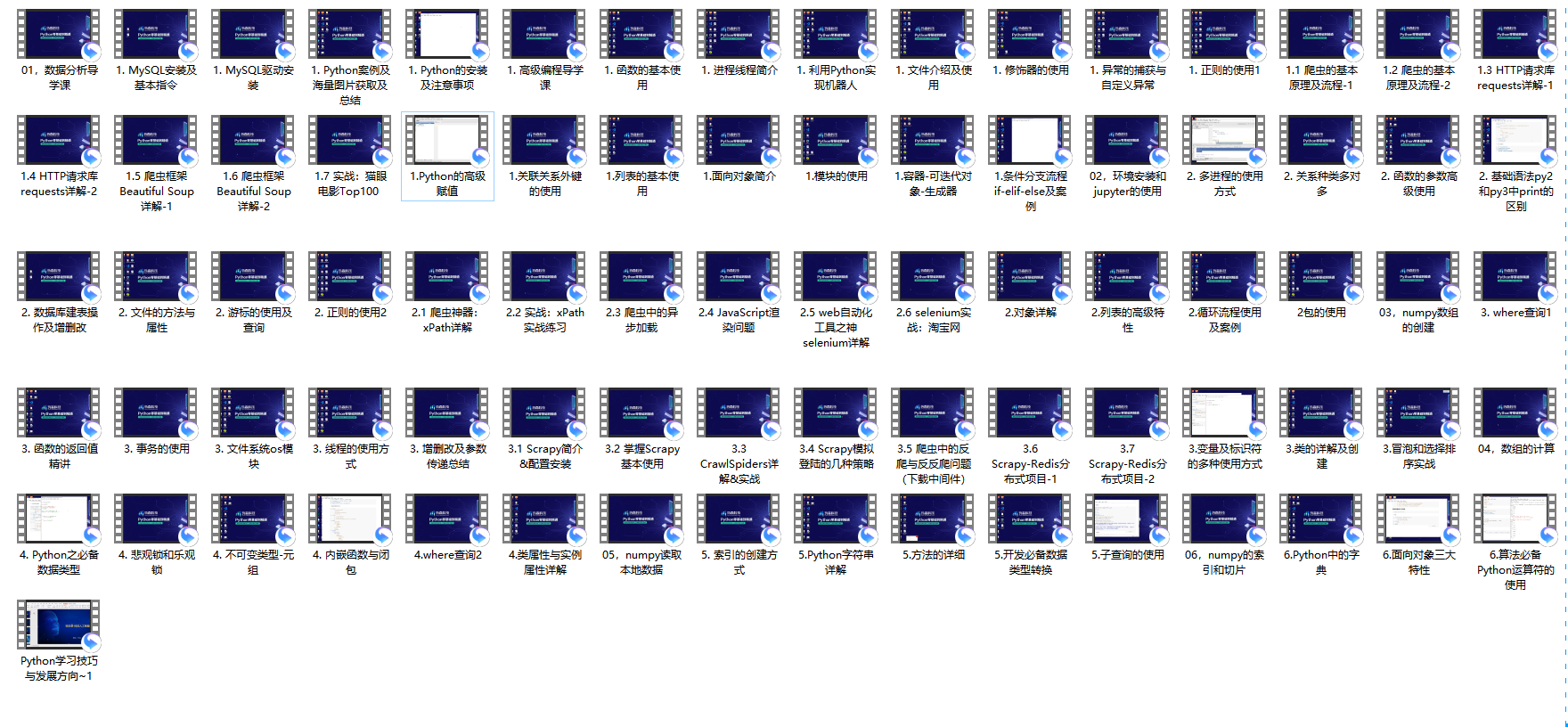
(3)100多个练手项目
我们在看视频学习的时候,不能光动眼动脑不动手,比较科学的学习方法是在理解之后运用它们,这时候练手项目就很适合了,只是里面的项目比较多,水平也是参差不齐,大家可以挑自己能做的项目去练练。
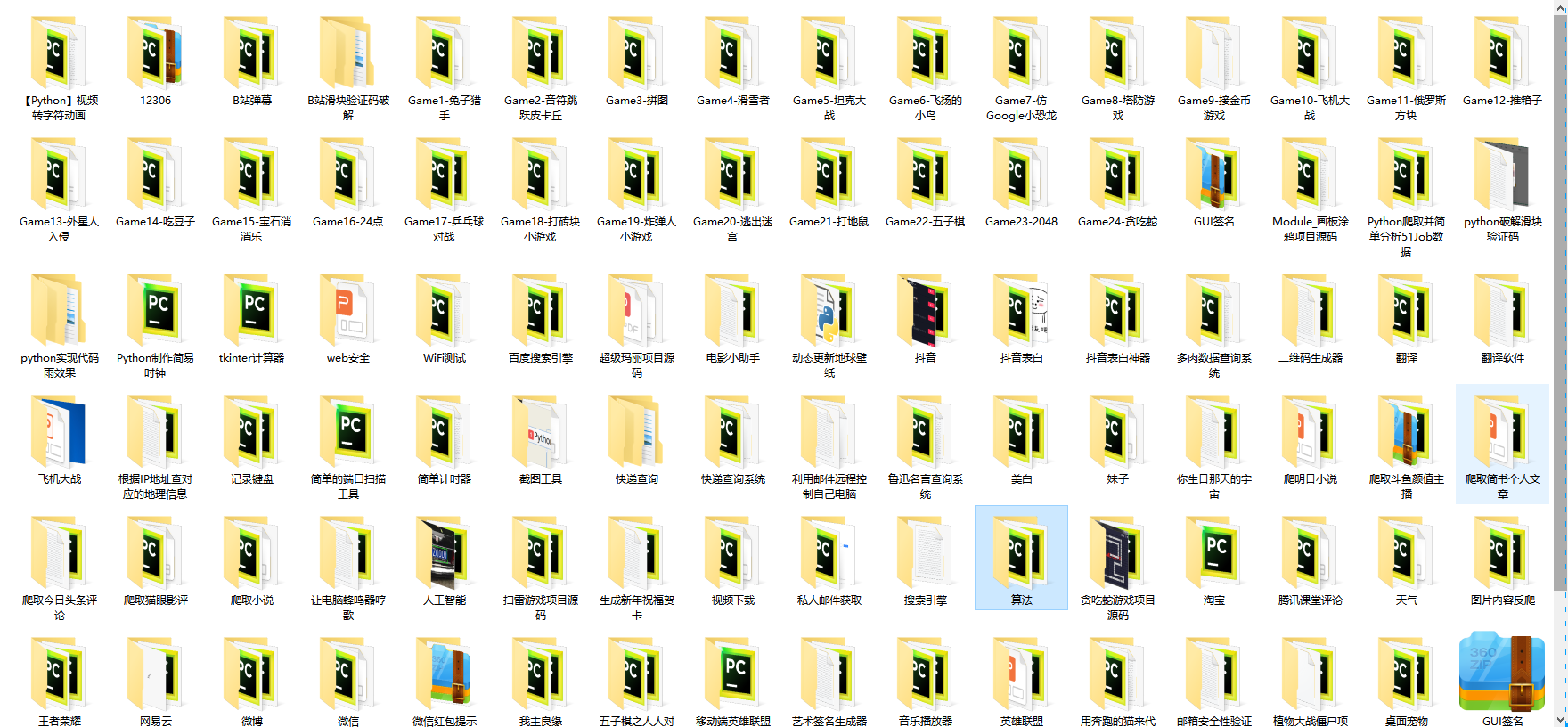
一个人可以走的很快,但一群人才能走的更远。如果你从事以下工作或对以下感兴趣,欢迎戳这里加入程序员的圈子,让我们一起学习成长!
AI人工智能、Android移动开发、AIGC大模型、C C#、Go语言、Java、Linux运维、云计算、MySQL、PMP、网络安全、Python爬虫、UE5、UI设计、Unity3D、Web前端开发、产品经理、车载开发、大数据、鸿蒙、计算机网络、嵌入式物联网、软件测试、数据结构与算法、音视频开发、Flutter、IOS开发、PHP开发、.NET、安卓逆向、云计算
orums/4304bb5a486d4c3ab8389e65ecb71ac0)
AI人工智能、Android移动开发、AIGC大模型、C C#、Go语言、Java、Linux运维、云计算、MySQL、PMP、网络安全、Python爬虫、UE5、UI设计、Unity3D、Web前端开发、产品经理、车载开发、大数据、鸿蒙、计算机网络、嵌入式物联网、软件测试、数据结构与算法、音视频开发、Flutter、IOS开发、PHP开发、.NET、安卓逆向、云计算


